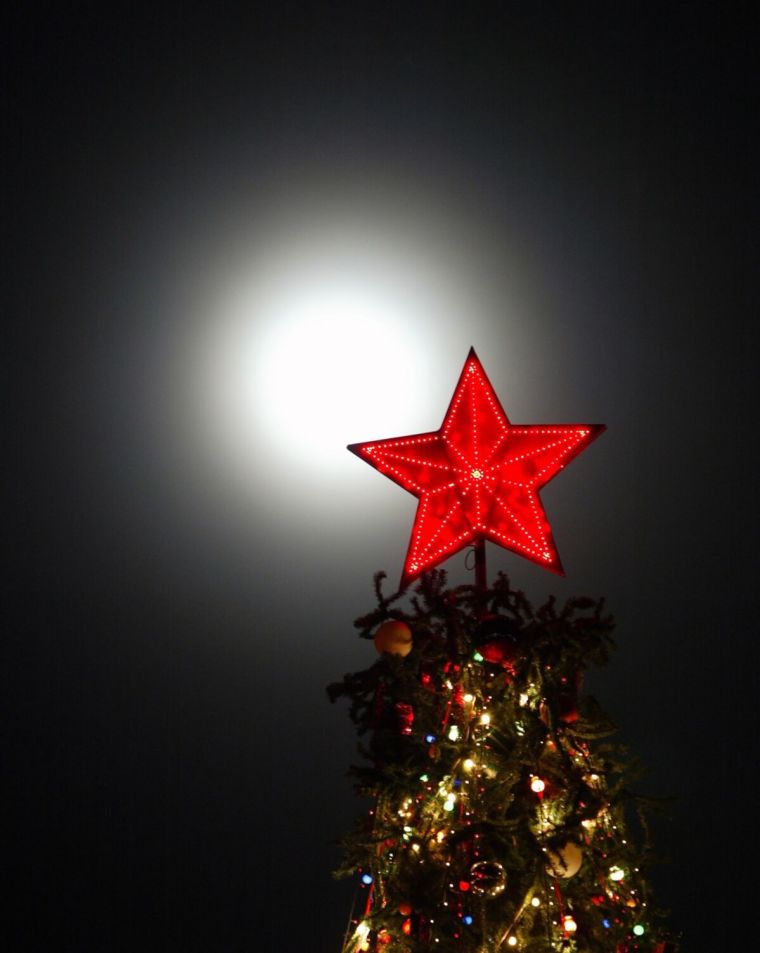How did the Star of Bethlehem manage to stop over the stable?

Everyone knows that the three kings were guided to Bethlehem by a star, where they found the baby Jesus in a manger with the shepherds and various livestock.
Only, like a lot of what everyone knows, that turns out to be not entirely true. There might not have been three of them, for a start. Also they weren't kings, they were "Magi" – a particular brand of wise man. Jesus had left the manger up to a couple of years before, and the whole Nativity crib scene we love so much doesn't really stand up to scrutiny.
At least there was a star, surely?
Well, yes – but it behaves very strangely.
In Matthew 2:2 the Magi – an indeterminate number of them – tell King Herod that they have seen the star of the King of the Jews "in the east". In verse 9 we read that they "went on their way, and the star they had seen in the east went ahead of them until it stopped over the place where the child was" – which is very odd behaviour for a star.
Here are some ideas to ponder.
1. According to the Greek historian Herodotus, the Magi were from Persia. They were originally a tribe who tried to seize power in the Persian empire, but failed. They became a tribe of priests, instead, expert in astrology and astronomy, fortune-telling and counsel. In those days everyone believed that the stars could foretell the future, so if a special star appeared it was likely to foretell some great event.
2. Different suggestions have been made about they saw "in the east". Halley's comet was visible in about 11 BC. In about 7 BC there was a conjunction of Saturn and Jupiter which would have been very bright. In 5-2 BC, on the first day of the Egyptian month of Mesori, Sirius rose at sunrise and shone very brightly. Mesori means "birth of a prince" and may have been what the Magi saw.
3. That may have been enough to set them off on their journey, but stars and comets don't behave as Matthew says this one did. One way of explaining this is to say that it was a poetical way of putting it; they were guided, however it was. Another commentator suggests that Matthew is describing an angel; stars in ancient mythology were regarded as living beings (CS Lewis uses this idea in The Voyage of the Dawn Treader).
4. The mechanics of the Magi's visit aside, what's interesting is what it meant. Gentiles, with no knowledge of the Jewish Messiah, were coming to worship him – perhaps a fulfilment of the prophecy in Isaiah 60:3, "Nations will come to your light, and kings to the brightness of your dawn." They were bringing gifts, perhaps a fulfilment of verse 5, "to you the riches of the nations will come". They symbolises not only the kingly power of Jesus over all the earth, but his grace to all humanity, Gentiles as well as Jews: the doors of the Kingdom were flung wide open.
5. It's also significant that they know who the true king is. Unwisely, they ask Herod for advice before they arrive at Bethlehem, but they don't worship him or offer him their gifts. When the powerful are challenged they react with fury, but Christ presents us with the same alternative today: honour him, or honour Herod.
Wise men and women still seek him.
Follow @RevMarkWoods on Twitter.











